#as i watch previews
Note
Why do you think they put Savannah Claw Rook up to pull??? Is he even going to participate in Book 7???? I am so confused WHY HIM??? WHY NOT IDK, CREWEL? VARGAS? MAYBE TREIN?? WHY HIM.
I’m SO CONFUSED. Is it just for money grabbing or something like that? It doesn’t make any sense.
Also how prepared you are for the probably last update of Book 7?
I mean...it said he's a story card, and all the other story cards have had major roles, so I see no reason to assume he won't as well! (plus any staff cards are probably all going to be events like Crowley was; I would honestly be MORE surprised to see them as story cards.) really though I'm having fun trying to figure out how he's going to tie into things! we're back at Cerberus Ortho levels of "WHAT DOES IT MEEEAAAAN" and it's great. :D
I assume we're going to be doing some more dream-hopping, but I think it would be hilarious if it turned out to be someone else's dream instead of Rook's. who else could possibly be dreaming about him pre-fancification.

(I'm also half afraid that this really is the last part, and half afraid that it isn't. I'm -- I'm not going to believe anything until we get the diadorm rerun pickups, and maybe not even then)
#art#twisted wonderland#twisted wonderland spoilers#twisted wonderland episode 7 spoilers#twisted wonderland book 7 spoilers#twisted wonderland episode 7 part 8 spoilers#twisted wonderland book 7 part 8 spoilers#i mean nothing is going to top cerberus ortho because we didn't even know story cards were going to be a THING#the twitter just dropped the preview image with zero context or explanation and we all collectively lost our pumpkins#this is coming pretty close though i tell you what#twst pr team really does love just sitting back and watching chaos ensue
888 notes
·
View notes
Text

Look how wholesome and cute this is. You would never believe this is the mommy/daddy omegaverse breeding kink fast and furious AU
#cookie speaks#pit babe#i open iQIYI#and this is the first thing i see#im not even watching the show#this is just the scrolling previews#charlie looks like he should be wearing a halo#instead he's trying to breed his boytoy
513 notes
·
View notes
Text
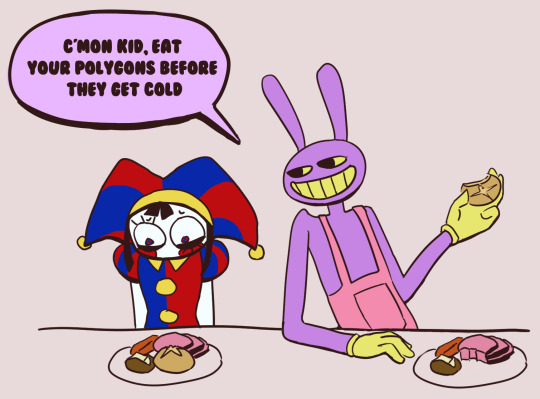
#the amazing digital circus#tadc#my art#pomni#jax#first time i watched i just kept thinking.#pomni ur polygons. pomni ur polygons theyre getting cold#dont just sit there ur POLYGONS are getting cold eat them!#aw love how my images look nice and crisp in the preview#and then i actually post the image and its fucked up and blurry#thank u tumblr ur never fail to disappoint me </3
562 notes
·
View notes
Text
!! ALERT !! ANDREW CUNNINGHAM BROKE DOWN ALL USES OF GASTER'S THEME IN DELTARUNE
youtube
If you don't know how to listen for things that aren't 100% obvious in music, like me, don't worry!!!! He puts everything side by side, hence the monstrosity in the thumbnail. He even uses the piano. There's even a 2-axis graph at the end!!!!
#undertale#Deltarune#deltarune theory#UtDr#Gaster#Another Him#I could tag all of the songs in the video but I'm not gonna do that#He also has other videos that are cool. Like the one I have a preview of in my pinned.#noelle holiday#noelle deltarune#<- oh ho that's a spoiler I can't talk about why that's in the tags go watch the vibeo!!!#Also these ->#Spamton NEO#BIG SHOT#Jevil#THE WORLD REVOLVING#Youtube#w.d. gaster#(<- I just forgot to add that one until just now)
961 notes
·
View notes
Text
so much happened this episode...
i spent the whole time kristen was talking to naradriel fucking convinced that nara had done the spies/spy's tongue curse/agreement on that 3 week retreat with her family and been taking devil's nectar/honey to start to believe the lie that she believes in wolf song and loves tracker
when emily mentioned spies/spy's tongue i got incredibly excitwd and then was immediately crestfallen when she was talking about the gods
but clearly something is up with the gods! AND ADAINE LEARNED THE NAME OF THE DEAD GOD! and everything went IMMEDIATELY WRONG!!!
the moon attacking fig's curse! adaine counterspelling it! the curse on fig being broken, sort of not quite maybe! baron's return!
i'm so excited for next episode, but having minis for baron... seeing his fucking. skeleton smile as a weird little boy. and then his final form of long, snaking limbs of bone with that same smiling face... terrifying! i look forward to it!
final thought is that i hope the werewolf we saw isn't jawbone, but also i think it is jawbone and that makes me nervous about emotional damage, which is turn actually makes me hope that it is jawbone bc i enjoy pain and suffering in my stories
#i need the new episode fucking yesterday#the ending of the episode and the preview had me hyperventilating#to be fair the end of every episode this season has been doing that to me#i've never watched an intrepid heroes season as it comes out#losing my MIND#so good tho#dimension 20#d20#d20 spoilers#fantasy high junior year#d20 fhjy#fhjy#fhjy spoilers#the bad kids#kristen applebees#naradriel#tracker o'shaughnessey#adaine abernant#fig faeth#baron of the baronies#jawbone o'shaughnessey
145 notes
·
View notes
Text

Digimon Adventure 02: THE BEGINNING countdown! Day 1: Daisuke and V-mon
02beginning x Digimon Survive
Something for @digimon02countdown uwu
Sorry I'm still obsessed with Survive but I'm also very hyped for the movie so, why not smash them? Anyway, here have my attempt at drawing Dai and V in the Survive art style with a lazy bg of the spider lilies forest~
The next episode of Digimon Adventure 02, "THE BEGINNING" hits japanese cinemas this October 27th 2023.
The gate for a new adventure opens now!
Static version below ;3

Also, this is what I mean when I say that I can't draw baby/child level Digis OTL
As a V-mon oshi, I feel so ashamed that I can't draw V-mon OTL I want to cry.
#digimon02countdown#digimon#digimon adventure 02 the beginning#motomiya daisuke#v-mon#veemon#daisuke motomiya#davis motomiya#02beginning#can't believe the day is so close ;w;#I swear I'm crying ;w;#did you guys watched the special preview with target and a 'narration' for a 'next episode'?#yes it made me cry to listen 'the gate for a new adventure opens now' and now you know why I added that to the description :D
282 notes
·
View notes
Text
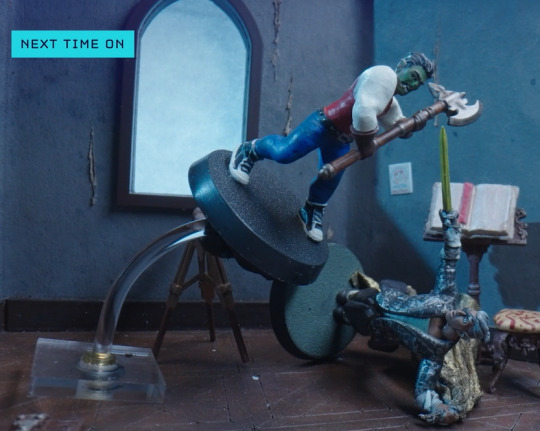
they were fucking here
#notorious masc moment#i havent even watched the episode i just watched the preview for next episode because im mentally unwell#ragh barkrock#fabian seacaster#fabragh#dimension 20#d20 fantasy high#fantasy high#fantasy high junior year#spoilers#fhjy spoilers
147 notes
·
View notes
Text

double mv frame redraw
#milgram#ミルグラム#milgram fanart#mikoto kayano#i see ppl do these all the time finally my turn to do it#I'm not insanely fast btw I watched the mv preview#watch there be a way cooler frame in the full mv but im impatient#john milgram#<- is it ok to call him that now
225 notes
·
View notes
Text
looking at the 'midseason trailer' and seeing roman fighting his siblings, roman shitting on gerri, roman working for fascists, roman walking proudly through ATN like logan did just two days prior... it's not surprising, but it is fucking sad.
logan's death will not free roman. instead, it will reforge the chains he's worn all his life, casting them in iron -- that's what roman deserves for thinking, for the first time in his life, that maybe he wants the chains off. that's what roman deserves for killing his father by not loving him enough, by not loving him correctly or at the right times. logan's death will not free roman at all. if anything, it will imprison him.
(as always, this got very long, so keep reading under the cut!)
this was the worst case scenario for roman. not just logan dying, but the exact way everything played out. he betrayed his siblings, he fired gerri -- for nothing. he could have been on the plane with his father in his last moments -- he refused. his last interaction with his father was leaving logan a voice message that called him a cunt -- the first time roman has ever, ever, questioned or stood up to his father, and also the last. we don't know what killed logan. we probably never will. but god if it won't feel awfully coincidental to roman: the one time he fought back against his father or even showed the slightest hint of doing so, his father died. is it likely that logan heard roman's voice memo and keeled over because he called him a cunt? no. but is it just as possible as anything else? entirely. roman might have killed his dad. roman murdered logan when he could've been on the plane with him holding his hand, if he were a good son. he didn't even tell logan he loved him. not that he needed to, it fucking oozed from his every pore and the desperate nature of that love was one of the reasons logan could never quite stand him -- but that's not the point. roman's one attempt at agency, at setting boundaries, at standing up for himself killed his fucking father.
logan dying would never have been good for roman, at least in his current state, no matter how the actual death came to pass. people often talk about abusive relationships as if the end-all-be-all fixer to abuse is independence, and it's not. independence isn't always enough to heal, especially not when it's forced upon you rather than something you choose. this is especially true for roman, i think. what roman needed was not just to gain his own independence, but to realize that independence and love are not mutually exclusive, that gaining one does not mean losing the other. logan's always hammered in roman's weakness, his wrongness; roman was never someone who deserved to be loved on his own terms. roman's never considered himself to be someone with agency and authority in his relationships -- he's been told over and over again that he isn't a real person, that there's something deeply wrong and unfixable in him, and he believes it. he's never set boundaries with his father or even his siblings because i don't think he really realizes he has the power to do that. he's simply there until people decide they no longer have use for him or want him around, and he'll always come crawling back after a kick because he doesn't realize he's not on a leash -- that he doesn't need to be on a leash. independence has been unreachable all his life, he isn't normal or real enough to be a real normal independent capable person, but if he grovels and shows his use enough, then maybe he can be loved. but his dependence and loyalty is all he's good for. independence means no love, no family, no relationships. and roman desperately wants, needs, those relationships in a way that none of the other characters do (or at least can admit to) -- he wants his father in his life, no matter what; he wants his siblings in his life, no matter what. but independence, being his own person, separating himself from logan's side means he'd lose everything else, everyone else. he's not good for anything anyways. it's not like he has other options.
...until the start of season four. that's why this is all so tragic -- more than anyone else, it seemed like roman was on the road to healing. it seemed like he was finally realizing that independence and love might not be as mutually exclusive as he's been made to think: maybe he could be independent while still having a relationship with his siblings and even his father. maybe he could have his cake and eat it too. he's realized that he's capable, that he has his own worth, and that he can be successful without living under logan's thumb -- and, more importantly, could still text him on his birthday and try to rebuild a relationship, this time outside of business. outside of "that room" in waystar royco. an actual fucking family relationship. that's what escaping the cycle would look like for roman — not complete separation, not a metaphorical killing of his father, but the ability to live alongside him, to have a life outside of him, to love his father without living for him. so simply removing logan from the equation wouldn’t help roman, not when what he needs most is to realize that self-respect is not mutually exclusive with love, that being your own person isn’t a betrayal, that family and love aren’t dependent on how low you can kneel and won’t be whisked away the moment you stand up. and for the first time in his life, it seemed like he was on track to discovering this. maybe he and the siblings could have the hundred, logan could keep going with atn, and in a few years down the line they'd all get together to talk shop and joke around and coexist -- for the first time, he had started to think of himself as enough of a real, okay person to be allowed to coexist with his family, rather than naturally subordinating himself in every interaction.
roman could’ve been his own person, could’ve escaped the cycle, could’ve started a business with his siblings and tried to heal, but now he won’t. he can’t. roman can’t become his own person now, not when his first attempt to do so is exactly what killed logan. it’s his fault. he fucked up and now there’s no dad. he gained his independence, but at what cost? love. that’s the cost. it always has been and always will be. nothing could be more detrimental to roman roy than the exact series of events that occurred in this episode, because just as he started to see a world beyond his father, logan dies -- proving once and for all that the only world beyond logan is one without him in it at all. that’s been roman’s fear all along and why he’s stuck so close to his side: roman loves and loves and loves and is terrified, terrified, of death. of loss. but in a moment of 'weakness,' roman wobbled (he tried to stand up to logan rather than just taking the kicks as he's supposed to, as he always has), and his father paid the ultimate price. there’s no more dad. there’s no reviving him.
…unless, of course, there is. unless roman can undo his error by choosing his father again, and again, and again. becoming logan is the closest roman can get to resurrecting him, after all. and besides, doesn’t he owe it to dad after killing him? after calling him a cunt, choosing not to be with him on that plane he ended up dying on? after forgetting to even say “i love you dad” before the end? roman needs to fix things. needs to make it like dad's still here. needs to make it like he didn't kill his own father by refusing him for the first time in his life. so roman will be the firebreather logan wanted -- he'll do ATN, he'll push for mencken, he'll do whatever it fucking takes to try and make things right. if it's his fault logan's no longer here, then he needs to do everything he possibly can to fulfill his dying wishes, to do what logan would've done, were he alive.
"dad can't die, he's dad." he can't ever die. he's immortal, and his immortality was solidified by the circumstances of his death -- logan will not die. he’ll live on in roman, as roman.
roman will make sure of it.
#to clarify -- i do not think this is roman's endgame. i Hope it is not his endgame. i just think based on the previews and everything we#know about both him and the upcoming episodes... i think this is where his arc is heading for now. and it will be UNBEARABLE to watch#i'm hoping things get better by the end. that there's reconciliation and an ending open enough to allow for a slim possibility of future#healing. but as of right now... i think things are going to get a lot - a LOT - fucking worse before they get better (if they get better..)#k it's 1:30 am i haven't read over this at all so fair warning there. but yeah. told yall i had a lot of thoughts re: what this might do to#roman. hats off to jesse armstrong for creating the literal worst situation imaginable for him. fucking ingenious. i too love putting this#sad little man in situations! but yeah. gonna be watching thru my hands but eating it up while weeping etc etc etc#succession#succession spoilers#roman roy#succession meta#succession s4#connor's wedding#logan roy#casey shut the fuck up about roman roy#100#500#succession speculation
660 notes
·
View notes
Photo





tom haverford reacts to msp 1x12 ♡
#listen... idk what this is either alskdf#i was making another gifset but i got distracted watching this scene on a loop in the preview window#so here is a representation of my current mental state <3#my school president#parks and rec#tinngun#asianlgbtqdrama#asiandramasource#gemini#fourth#gemini: tinn#fourth: gun#gifs#series#memes#msp 1x12#parks and rec 2x09#parks and rec 🤝 being my comfort shows 🤝 msp#n:500#m:g
678 notes
·
View notes
Text
i hope clickbait snapchat stories never change because this preview made me laugh really hard

#won’t put myself through watching the actual story because i know it’s dumb as hell just bringing dead drama back up#but the preview photo looks like something a stan would make it’s rlly funny
291 notes
·
View notes
Text



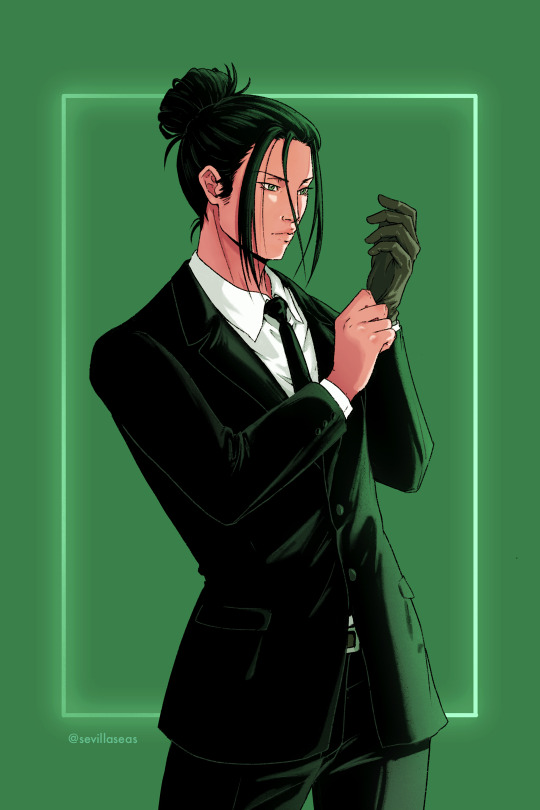
Listen they all look SO GOOD in the Providence promo
#psycho pass#psycho pass providence#ginoza nobuchika#tsunemori akane#kougami shinya#illustration#fanart#sevillaseas#it'll be awhile before i can watch it but all the previews and promo art had me in a vice grip#also i love it when the boys look like akane's minions in trio shots lol
251 notes
·
View notes
Text
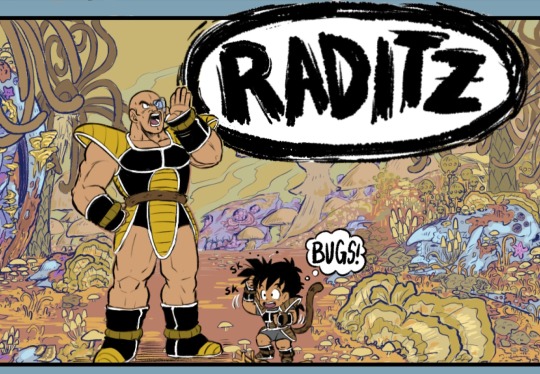
Its 1am, so I am once again posting a wip/preview thing of a comic im physically fighting myself to just finish up
#i dont think its a good habit to post wips#buuuuuuttttttt#to be fair this is more of a preview#and i think its my favorite panel on the page#and. and. more importantly#i wanna :U#lol i literally only have 3 more panels to draw#if i would just sit down and focus i could knock it out#but im absolutely not gonna do that#heh heh this is also an excuse to tag rant#i read and watched annihilation so now theres mushrooms everywhere#imma start the 2nd book once this is done
175 notes
·
View notes
Text
The role of Pryce and Carter's Deep Space Survival Procedure Protocol Manual in the characterisation, symbolism, and themes of Wolf 359
TL;DR: The DSSPPM is used as a tool to help establish and develop Minkowski and Eiffel as characters: Minkowski as a strict Commander who clings to the certainty provided by a rigid source of authority like the DSSPPM, and Eiffel as the anti-authority slacker who strongly objects to the idea that he ought to read the manual. The way their contrasting attitudes towards the DSSPPM manifest through the show reflect their character development and changing dynamic. The DSSPPM can be directly used against the protagonists by those with power over them, and the reveal of its authorship gives a particularly sinister edge to its regular presence in the show. But it can be also be repurposed and seen through an individual interpersonal lens.
Note: There’s plenty that you could say about the DSSPPM through the lens of what it says about Goddard Futuristics as an organisation, or about Pryce and Cutter as people. Or you could talk about Lambert quoting the DSSPPM an absurd number of times in Change of Mind, and Lovelace’s reactions to this. But in this essay, I’ll be analysing on mentions of the DSSPPM with a focus on Minkowski, Eiffel, and their dynamic.
“One of those mandatory mission training things”: the DSSPPM as a tool to establish characterisation
The first mention of Pryce and Carter's Deep Space Survival Procedure Protocol Manual (the DSSPPM) in Wolf 359 is also the very first interaction we hear Eiffel and Minkowski have. In fact, the first time we hear Minkowski's voice at all is her telling Eiffel off for not having read the manual:
[Ep1 Succulent Rat-Killing Tar]
MINKOWSKI Eiffel, did you read your copy of Pryce and Carter?
EIFFEL My copy of what?
MINKOWSKI Pryce and Carter's Deep Space Survival Procedure Protocol Manual.
EIFFEL Was that one of those mandatory mission training things?
MINKOWSKI Yes.
EIFFEL In that case, yes, I definitely did.
MINKOWSKI Did you now? Because I happened to find your copy of the D.S.S.P.P.M. floating in the observation deck.
EIFFEL Oh?
MINKOWSKI Still in its plastic wrapping.
This is an effective way to establish their conflicting personalities right out of the gate. Minkowski's determination to "do things by the book - this book in fact" contrasts clearly with Eiffel's professed ignorance about and clear disregard for "this... Jimmy Carter thing”. Purely through their attitudes to this one book, they slot easily into clear archetypes which inevitably clash. Everything about Eiffel in that opening episode sets him up as a slacker who doesn't care about authority, but the image of his mandatory mission training manual floating in the observation deck "still in its plastic wrapping" provides a particularly striking illustration.
By contrast, we immediately encounter Minkowski as a strict leader who cares deeply about making sure everything is done according to protocol; the intense importance she places on the DSSPPM is one of the very first things we know about her. Her insistence on the importance of the survival manual might seem somewhat understandable at first, if perhaps unhelpfully aggressive, but it starts to feel less sensible as soon as we start to hear some of the tips from this manual:
Deep Space Survival Tip Number Five: Remain positive at all times. Maintain a cheerful attitude even in the face of adversity. Remember: when you are smiling the whole world smiles with you, but when you're crying you're in violation of fleet-wide morale codes and should report to your superior officer for disciplinary action.
The strange, controlling, vaguely sinister tone of some of the tips we hear in the first episode is largely played for laughs, emphasised by the exaggeratedly upbeat manner in which Hera reads them. But even these first few tips give us some initial suggestions that the powers behind this mission might not care all that much about the wellbeing of their crew members.
It says something about Minkowski that she places such faith and importance in a book which says things like "Failing to remain calm, could result in your grisly, gruesome death" and "when you're crying you're in violation of fleet-wide morale codes and should report to your superior officer for disciplinary action." (Foreshadowing the Hephaestus Station as the home of immense emotional repression and compartmentalising...) Having those kind of pressures and demands placed on her (and those around her) by people above her in the military hierarchy doesn’t unsettle Minkowski.
Eiffel groans and sighs as he listens to the tips, but Minkowski seems to see this manual as an essential source of wisdom. The main role the manual plays in this episode is to establish Minkowski and Eiffel as contrasting characters with very different approaches to authority and therefore a potential to clash.
When Minkowski demands that Eiffel reads the DSSPPM, he decides to get Hera to read it to him, asking her to keep this as “a 'just the two of us, totally secret, never tell Commander Minkowski' thing”. Eiffel seems convinced that Minkowski won't be happy with him listening to Hera read the DSSPPM rather than reading it himself. This suggests that (at least in Eiffel's interpretation) Minkowski’s orders are not just about her wanting him to know the contents of the manual, since this could theoretically be accomplished just as well by him listening to it. But she wants him to do things in what she’s deemed to be the correct way, to put in the right amount of effort, and not to take what she might see as a shortcut. It’s not just about the contents of the manual; it’s about the commitment to protocol that reading it represents.
“When in doubt: whip it out”: Hilbert’s use of the DSSPPM
In Season 1, the DSSPPM isn't purely associated with Minkowski. Hilbert actually quotes it more than she does in the first few episodes. In Ep2 Little Revolución, Hilbert's response to Eiffel's toothpaste protest is inspired by "Pryce and Carter six fourteen: “When in doubt, whip it out - ‘it’ being hydrochloric acid.”" This tip is absurd in a more direct obvious way than those we heard in Ep1. While this absurdity is partly for humour, it also casts further doubt on the usefulness of this supposedly authoritative survival manual, and therefore on the wisdom of trusting Command.
In Ep4 Cataracts and Hurricanoes, Hilbert starts to quote Tip #4 at Eiffel, who protests "I'm not gonna have one of the last things I hear be some crap from the survival manual". These moments again place Eiffel in clear opposition to the DSSPPM, but also suggest that Hilbert's attitude towards the DSSPPM - and therefore towards Command - is closer to Minkowski's than to Eiffel's.
When Hilbert turns on the Hephaestus crew in his Christmas mutiny, his allegiance to Command is revealed as dangerous. And here the DSSPPM comes up again. As Minkowski dissolves the door between her and Hilbert, she triumphantly echoes his own words back to him: "Pryce and Carter six fourteen: “When in doubt, whip it out - ‘it’ being hydrochloric acid.” Never. Fails." This provides a callback to a previous, more comedic conflict on the Hephaestus, and reminds the listener of a time when Minkowski and Hilbert were working together against Eiffel, in contrast to the current situation of Minkowski and Eiffel versus Hilbert. But it also shows that Minkowski, like Hilbert, is capable of using some of the more absurd DSSPPM tips to defeat an adversary. And it shows Minkowski leaning on those tips in a real moment of crisis.
Once Hilbert has betrayed the crew in order to follow orders from Command, we might look back on his quoting of the DSSPPM as casting the manual in a more sinister light, and again calling into question the wisdom of Minkowski placing such trust in it.
“It's not that I don't believe it, I'm just disgusted by it”: the DSSPPM as an indicator of a changing dynamic
The next mention of the DSSPPM is in Ep17 Bach to the Future:
MINKOWSKI Eiffel's been spot-testing me, Hera. He doesn't believe that I've memorized all of the survival tips in Pryce and Carter.
EIFFEL It's not that I don't believe it, I'm just disgusted by it. I keep hoping to discover it's not true.
MINKOWSKI Well, believe as little as you want, doesn't change the fact that I do know them. And so should you!
I think this provides an interesting illustration of the way in which Minkowski and Eiffel’s dynamic has developed since Ep1. They still have deeply contrasting attitudes to the DSSPPM, but this contrast is now a source of entertainment between them, rather than merely of conflict.
Given that Hera wasn’t aware of Eiffel testing Minkowski on the tips, we can guess that it’s a game they came up with while Hera was offline. In the midst of all the exhaustion and uncertainty and fear they were dealing with after Hilbert’s mutiny, this was a way they found to pass the time. It must have been Eiffel who suggested it; Minkowski cites his disbelief as the reason for the spot-testing. And yet she plays along, responding each time, even though this activity has no real productive value.
Minkowski is keen to demonstrate that she does know the tips and she emphasises that Eiffel ought to know them too, but their interactions about the DSSPPM in this episode have none of the genuine irritation and frustration that they displayed in Ep1. It feels almost playful and teasing. Eiffel still thinks Minkowski is "completely insane" for learning all the tips and is "disgusted" by her commitment to memorising them, but these comments feel much closer to joking about a friend's weird traits than to insulting a hated coworker's personality. It feels like something has shifted since Eiffel responded to Minkowski’s passion for the DSSPPM by saying “I'm so glad that your shrivelled husk of a dictator's heart is as warm as a decompression chamber”.
Another thing to note here is that Minkowski's respect for the DSSPPM has clearly survived Hilbert's Christmas mutiny and Minkowski's resulting distrust of Command. From Hilbert's behaviour at Christmas, it's clear that the crew's survival is not at the top of Command's priority list. But Minkowski still trusts the book that Command told her to read. She still thinks Eiffel should read it too. The main figures of authority above her are dangerous and untrustworthy, but she still clings to the source of guidance they provided her with.
It's also worth noting that Minkowski has not just learnt the advice in each of the 1001 tips, but she has memorised (nearly) all of them by number. If it was just about the information that the manual provides to inform responses to potentially life-or-death situations, then knowing the numbers wouldn't be necessary. Nor would it be particularly useful to know them all exactly word-for-word. Minkowski's reliance on the DSSPPM is again suggested to be about more than the potential practical use of its content. It's about showing that she is committed and disciplined and up to the task of leading. She does have some awareness of the strangeness of many of the tips, but this doesn't diminish the value of her adherence to the manual for her:
EIFFEL You're insane.
MINKOWSKI I'm disciplined. Although I will admit they do get more... esoteric as you go higher up the list.
There's only one tip Minkowski doesn't seem to remember, and that's revealing too:
EIFFEL 555?
Minkowski DRAWS BREATH - and STOPS SHORT. [...]
MINKOWSKI Hold on a second, I know this. (beat) Dammit.
EIFFEL Hey, look at that! Looks like there may be hope for you yet.
MINKOWSKI Quiet, Eiffel. Hera, what's D.S.S.P.P.M. 555?
HERA "Good communication habits are key to continued subsistence. Be in touch with other crew members about shipboard activities. Interfacing about possible problems or dangers is the best way to anticipate and prevent them."
This hangs in the air for a second. Then –
EIFFEL So you forget the one tip in the entire manual that's actually helpful?
MINKOWSKI Shut up.
Communication is a key theme of this show, so it’s interesting that this is the one tip Minkowski can’t remember, perhaps indicating an aspect of leadership and teamwork that she doesn’t always prioritise or find easy.
Eiffel saying “Looks like there may be hope for you yet” seems like just a throwaway teasing line, but it’s got a profound edge to it. A lot of Minkowski’s arc is about learning how to provide her own direction and support her crew outside of the systems of authority and hierarchy that she’s grown so attached to. So perhaps Eiffel is right to see a kind of hope in her failure to remember every single DSSPPM tip – she has the potential to break free of her reliance on external authority.
“Which one was 897, what was the exact phrasing of that Deep Space Survival Tip?”: the DSSPPM in interactions with Cutter
The Wolf 359 liveshow, Deep Space Survival Procedure and Protocol, is literally named after the manual. This suggests, before we’ve even heard/watched the episode, that the DSSPPM will be a key symbol here. Which is interesting because I'd say the liveshow has two main plot points: (a) Eiffel's failure to read the DSSPPM or follow orders in general, the resulting disruption to the mission, and his crewmates' frustration with this; and (b) the looming threat of Cutter, the necessity of keeping information from Command, and the risk of fatal mission termination.
Even without the knowledge that Cutter is one of the co-authors of the DSSPPM (which neither the Hephaestus crew nor a first-time listener knows at this point), there's a kind of irony in the contrast between these two plotlines. On the one hand, Minkowski repeatedly berates Eiffel for not having read Pryce and Carter's Deep Space Survival Procedure and Protocol Manual, which was made mandatory by Command. On the other hand, she is aware that Command in general - and Cutter specifically - represents the biggest threat to the safety and survival of her crew.
Cutter uses the DSSPPM against each of the Hephaestus crew in their one-on-one conversations with him. For Minkowski, he uses it as a way of emphasising the expectations and responsibility placed on her:
MINKOWSKI There are always gaps between expectation and reality, but--
CUTTER But it's our job as leaders to close that gap, isn't it? Pryce and Carter...?
MINKOWSKI 414, yes. Yes, sir, I know.
Cutter knows that Minkowski will know those tips and he knows abiding by them is important to her. She's quick to demonstrate her knowledge of the DSSPPM and agree with the tip. There's something deeply sinister to me about Cutter's use of the word 'our' here. His phrasing includes them both as leaders who should be ensuring that things are exactly as expected. It’s almost a kind of flattery at her authority, but it comes with impossibly high expectations. This way of emphasising the importance and responsibilities of her role as Commander is a targeted strategy by Cutter at manipulating Minkowski, designed to appeal to her values.
In Hera's one-on-one, Cutter uses a DSSPPM tip to interpret her behaviour and claim that he can read her motives:
CUTTER This thing you're doing. Asking questions while you get your bearings.
HERA Sir, I'm just curious about--
CUTTER Pryce and Carter 588: Shows of courtesy and polite queries are an efficient way to gain time necessary to strategize.
Unlike with Minkowski (or Eiffel), Cutter doesn't prompt Hera to demonstrate her knowledge of the manual. That wouldn't work as a power play against Hera, who would be able to recall the manual (or, rather, retrieve the file, however that distinction works within her memory) but who doesn't care about the DSSPPM like Minkowski does. Instead, Cutter implies that Hera’s behaviour can be predicted - or at the very least seen through - by the DSSPPM, which seems like a cruel attempt by Cutter at belittling her.
For Eiffel, Cutter uses the manual as a weapon in a different way again. He asks Eiffel, "which one was 897, what was the exact phrasing of that Deep Space Survival Tip?", something which Eiffel clearly doesn't know, but Cutter of course does. This puts Eiffel on the back foot, trying to defend and justify himself, allowing Cutter to emphasise his position of power yet again.
The DSSPPM plays a double role in the liveshow. On the one hand, as Minkowski reminds Eiffel, proper knowledge of the manual "would've saved [the crew] from these problems with the nav computer" – some of the tips can potentially save the crew a great deal of hassle, stress, and risk. On the other hand, the same manual is used by Cutter to manipulate, unsettle, and intimidate the crew. There are these two sides to the information given to the crew by Command - two sides to the manual which Minkowski still values.
In another duality for the DSSPM, the manual is sometimes used as a symbol of the relationship between the crew members and Command, and sometimes used to indicate the dynamics between the individual crew members, usually Minkowski and Eiffel. Before Cutter’s appearance in the liveshow, Minkowski and Eiffel’s discussions of the DSSPPM reflect interpersonal disagreements between two people with fundamentally different attitudes:
MINKOWSKI Oh come on, why do you think I keep trying to get you to go over these things? Do you think I enjoy going through them?
EIFFEL Yes.
MINKOWSKI Well, alright, I do. But this knowledge could save your life.
Minkowski enjoys rules, regulations, and certainty, for their own sake as much as for any practical usefulness. Eiffel very much does not. This is a simple clash of individuals, in which the link between the DSSPPM and Command is implicit. Minkowski doesn't seem to question the idea that the information in the DSSPPM is potentially life-saving, even though she knows Command don't care about their lives. But Cutter’s repeated references to the DSSPPM remind us who made that book a mandatory part of mission training – it certainly wasn’t Minkowski, even if she’s often the one attempting to enforce this rule.
At the end of the liveshow, in a desperate attempt to prevent mission termination, Eiffel promises Cutter that he will read the DSSPPM (the liveshow transcript notes that him saying this is "like pulling teeth"), an instance of the manual being used in negotiations between the Hephaestus crew and Command. All Minkowski’s orders weren’t enough to get Eiffel to read that book, but a genuine life-or-death threat might just about be enough. Perhaps it's ironic that Eiffel reads the survival manual out of a desire for survival, not because he thinks the contents of the book will help him survive, but because he’s grasping anything he can offer to buy the crew’s survival from those who created that same book.
In the final scene of the liveshow, Minkowski catches Eiffel reading the DSSPPM, and he fumbles to hide that he's been reading it, a humorous reversal of all the times that he's lied to her that he has read it. Perhaps admitting that he's reading it would be like letting Minkowski win. Minkowski seems to find both surprise and amusement in seeing Eiffel finally reading the manual, but she doesn't push him to admit it. There's some slightly smug but still friendly teasing in the way Minkowski says "were you now?" when Eiffel says that he was just reading something useful. In that final scene, the manual is viewed again through the lens of Minkowski and Eiffel’s dynamic – Command’s relation to the DSSPPM becomes secondary.
“The first thing I'd make damn sure was hard wired into anything that might end up in a situation like this one”: the DSSPPM as a tool of survival
In Ep30 Mayday, when Eiffel is stranded alone on Lovelace’s shuttle, he hallucinates Minkowski to bring him out of his helpless panic and force him into action. And this hallucination also brings with it one of Minkowski’s interests:
MINKOWSKI Eiffel... I worked on this shuttle. Reprogramming that console.
EIFFEL So? How does that help –
MINKOWSKI Think about it.
BEAT. And then he gets it.
EIFFEL Oh goddammit.
MINKOWSKI What's the first thing that I would do when programming a flight computer? The first thing I'd make damn sure was hard wired into anything that might end up in a situation like this one?
EIFFEL Pyrce and Carter's Deep Space Survival Procedure and Protocol Manual.
Again, a conversation about the DSSPPM gives us an indication of the development of Minkowski and Eiffel’s relationship. Not only does Eiffel imagine Minkowski as a figure of (fairly aggressive) support when he’s stranded and alone, he thinks about what advice she’d give him and he follows it. Rather than dismissing the manual entirely, he looks for tips that are relevant to his situation. He’s not pleased about his hallucinated-Minkowski trying to get him to read the DSSPPM, but that was what his mind gave him in an almost hopeless situation. Some part of him now empathises with Minkowski’s priorities in a way that he definitely wasn’t doing in Ep1. He thinks that the DSSPPM might be on the shuttle because he knows the manual is important to Minkowski. It’s by imagining Minkowski that he gets himself to read the manual in order to see if it can help him survive – he certainly doesn’t think about what Cutter or anyone else from Command would tell him to do.
In the end, the tips Eiffel picks out aren’t all that helpful or informative: “Confront reality head-on”; “In an emergency, take stock of the tools at your disposal. Then take stock again. Restock. Repurpose. Reuse. Recycle."; and “"In times of trouble, an idle mind is your worst enemy”. But Eiffel does use these tips to structure his initial thinking about how to survive on Lovelace’s shuttle. In an almost entirely hopeless situation, Eiffel finds some value in the DSSPPM. But since the tips he picks out are mostly platitudes, the actual wisdom that allows him to survive all comes from his own mind; the tips, like his hallucinations, are just a tool he uses to externalise his process of figuring out what to do.
“Wasn't there something about this in the survival manual?”: Minkowski potentially moving away from the DSSPPM
Given the significance of the DSSPPM in Season 1 and 2 to Minkowski in particular, it feels notable when the manual isn’t referenced. Unless I've missed something (and please let me know if I have), Minkowski – the real one, not Eiffel’s hallucination - doesn't bring up the manual of her own accord at all in Seasons 3 or 4. This might make us wonder if she’s moved away from her trust in and reliance on that book provided by Command.
Perhaps the arrival of the SI-5, which highlights to Minkowski that the chain of command is not a good indicator of trustworthy authority, was the final straw. Or perhaps the apparent loss of Eiffel - and any subsequent questioning of her leadership approach, or realisations about the valuable perspective Eiffel provided - were what finally broke down her faith in that book.
Alternatively, perhaps Minkowski still trusts the DSSPPM as much as ever, but trying to get Eiffel or any of the other crew members to listen to it is a losing battle that she no longer sees as a priority. Either way, Minkowski’s apparent reluctance to bring up the DSSPPM feels like a shift in her approach.
The associations between Minkowski and the DSSPPM are still there in Season 3, but they are raised by other characters, not by Minkowski herself. The manual is used to emphasise Eiffel’s difficulties when he’s put in charge of trying to get Maxwell and Hera to fill out a survey in Ep32 Controlled Demolition. Trying to force other people to be productive pushes Eiffel into some very uncharacteristic behaviour:
EIFFEL Jesus Christ, what is wrong with you? It's like you've never even read Pryce and Carter! Tip #490 very clearly states that –
He trails off. After a BEAT –
HERA Officer Eiffel?
MAXWELL You, uh, all right there?
EIFFEL (the horror) What have I become?
[...]
Eiffel, now wrapped up in a blanket, is next to Lovelace. He is still very clearly shaken.
EIFFEL ... and... it was like an episode of the Twilight Zone. I was slowly transforming into Commander Minkowski. [...] It was a nightmare! A terrifying, bureaucratic nightmare!
This is a funny role reversal, but it shows us the strength of Eiffel’s association between Minkowski and the DSSPPM, as well his extreme aversion to finding himself in a strict bureaucratic leadership position. It also suggests that becoming extremely frustrated when trying to get other people to do what you want might make anyone resort to relying on an external source of authority, such as the manual. I don’t know whether this experience helps Eiffel empathise with Minkowski, but perhaps it might give us some insight into how her need for authority and control in the leadership role she occupied might have reinforced her deference to the DSSPPM.
In Ep34, we get a suggestion of another character having a strong association between the DSSPPM and Minkowski. After the discovery of Funzo, Hera asks Minkowski what the manual says about it:
HERA Umm... I don't know if this is a good idea. Lieutenant, wasn't there something about this in the survival manual?
MINKOWSKI Pryce and Carter 792: Of all the dangers that you will face in the void of space, nothing compares to the existential terror that is Funzo.
It’s interesting to me that Hera asks Minkowski here. We know from Ep1 that “Pryce and Carter's Deep Space Survival Procedure Protocol Manual is among the files [Hera has] access to”. Two possible reasons occur to me for why Hera might ask Minkowski about the DSSPPM tip here. One possibility is that Hera thinks that retrieving the manual from her databanks and finding the correct tip would take her more time than it would take for Minkowski to just remember the tip. Which suggests interesting things about the nature of Hera’s memory, but also implies that - at least in Hera's view -Minkowski’s knowledge of the DSSPPM is more reliable than that of a supercomputer.
The other possibility is that Hera could have recalled the relevant DSSPPM tip incredibly quickly but she doesn’t want to, maybe because she resents having that manual in her head in the first place, or maybe because she wants to show respect for Minkowski’s knowledge as a Commander. Either way, we can see that Hera – like Eiffel – strongly associates Minkowski with the DSSPPM.
And Minkowski, even if she wasn’t the one to bring up the manual here, recalls the relevant tip immediately. Perhaps she is moving away from her trust in that manual, but everything that she learned as part of her old deference to the authority of Command is still there in her head. She might want to forget it by the end of the mission, but that’s not easily achieved. The way Minkowski’s friends/crewmates associate the manual with her emphasises the difficulty she’ll face if she tries to move away from it.
“One thousand and one pains in my ass”: The authorship of the DSSPPM
In Ep55 A Place for Everything, Eiffel effectively expresses his long-held dislike of the DSSPPM when he comes face-to-face with both of its authors:
EIFFEL What? What the hell are - wait a minute - Pryce? As in one thousand and one pains in my ass, Pryce? (sudden realization) Which... makes you...?
MR. CUTTER (holding out his hand) W.S. Carter, pleased to meet you.
It’s significant that the two ‘big bads’ of the whole series are the authors of the manual which Minkowski and Eiffel were bickering about all the way back in Ep1. It’s not the only way in which the message of this show positions itself firmly against just accepting externally imposed authority and hierarchy without question or evidence, but it does reinforce this ethos.
By being the authors of the manual, Cutter and Pryce have had a sinister hidden presence throughout the show. Long before we know who Pryce is and even before we hear Cutter’s name, their manual is there, occupying a prominent place in Minkowski’s motivations and priorities, and in her arguments with Eiffel. It’s not at all comparable to what Pryce put in Hera’s mind, but it is another way in which these antagonists have wormed their way into the heads of our protagonists.
Minkowski will have to come to terms with the fact that the 1001 tips she spent hours memorising and reciting were written by two people who would have killed her, her crew, and even the whole human race without hesitation if it served their purposes. We never get to hear Minkowski’s reaction to learning the identities of Pryce and Carter, but I think processing the role of their manual in her life will be a long and difficult road that’ll tie into a lot of other emotional processing she needs to do. Her assertion to Cutter that, without him, she is “Renée Minkowski... and that is more than enough to kick your ass!” feels like part of that journey. She doesn’t mention the DSSPPM at all in Season 4. She’s growing beyond it.
"Doug Eiffel's Deep Space Survival Guide": The DSSPPM as a weapon against those who wrote it
Last but not least, I couldn’t write about Eiffel and the DSSPPM without mentioning this scene from Ep58 Quiet, Please:
EIFFEL As someone once told me: "Pryce and Carter 754: In an emergency, take stock of the tools at your disposal, then take stock again. Repurpose, reuse, recycle." And right now? You know what I got? I got this lighter from when Cutter was using me as his personal cabana boy. [...] and I've got myself this big, fat copy of the Deep Space Survival Manual, and you know what I'm gonna do with it? [...]
Eiffel STRIKES THE LIGHTER. And LIGHTS THE BOOK ON FIRE, revealing Pryce just a few feet away from him!
EIFFEL I am going to repurpose it... and reuse it... and recycle it into a GIANT FIREBALL OF DEATH!
And he swings the flaming book forward, HITTING PRYCE ON THE SIDE OF THE HEAD. [...]
EIFFEL That's right! Doug Eiffel's Deep Space Survival Guide, B-
No one other than Doug Eiffel could pull off the chaotic energy of this moment. It doesn’t get much more anti-authority than lighting the mandatory mission manual on fire and using it as a weapon against one of its malevolent authors. It might not be the wisest move safety-wise, and it certainly doesn’t improve the situation when the node gets jettisoned into space. But there is still a powerful symbolism in taking a symbol of the hierarchical forces that have tried to constrain you for years and setting it alight to fight back against those forces. Eiffel takes his own approach to survival and puts his own name into the title, an assertion of his agency and rejection of Command's authority.
The DSSPPM tip that he uses here is one of those he considers when stranded on Lovelace’s shuttle. It’s understandable that after that experience it might have stuck in his memory.
I can’t help feeling that the line “as someone once told me” has a double meaning here. The immediate implication is to interpret “someone” as being Pryce and Cutter – it’s their manual after all – which makes this line a fairly effective ‘fuck you’ gesture, emphasising how Eiffel is using Pryce’s manual against her in both an abstract and a physical sense.
But I think “someone” could also mean Minkowski. Eiffel uses a singular rather than plural term, there’s already an association established between Minkowski and the DSSPPM, and, in Mayday, it’s his hallucination of Minkowski that gets him to read this tip. She's probably also recited this tip to him at other points as well. Under this interpretation, this line is as much a gesture of solidarity with Minkowski as it is a taunt to Pryce. I like the idea that these two interpretations can run alongside each other, reflecting the duality of the use of the DSSPPM that I talked about in relation to the liveshow.
Conclusion
The DSSPPM is a symbol of external rules imposed on people by those with power over them. These rules can be strange, arbitrary, and even sinister, but for those with a desire for certainty and control, like Minkowski, they can be tempting. And they can have their uses, as well as the potential to be repurposed. Attitudes towards these rules provide an effective shorthand as part of Minkowski and Eiffel’s characterisation. And the clash between these attitudes, and how that clash manifests, can tell us something about how the dynamic between those characters develops and changes.
#Wolf 359#w359#Renee Minkowski#Doug Eiffel#Renée Minkowski#I guess I lied when I said I was halfway through at 1000 words#I hope that those who liked my preview post were up for a long read#This is over 5000 words and I still haven't said everything!#You could write a PhD thesis on this#Honestly I feel like this is full of typos and mistakes cos I was kinda tired as I proofread it but I just want to get it posted today#Otherwise I could spend even more time on it and make it even longer... (and also I want it to be out in the world)#But please do lmk if you spot a typo/mistake. I won't be offended#I'd also be interested to hear people's thoughts on any of this#Unimportant point but I'm shaking my head at Minkowski if she wouldn't let Eiffel listen to the DSSPPM instead of reading it#Audiobooks are a valid method of reading. Don't deny a man with ADHD his own approach to absorbing info!#Then again. it might have been an unfounded assumption of Eiffel's that Minkowski wouldn't have accepted him listening to it#I think in school he definitely got in trouble for boasting that he's actually read the book this time when he just watched the film#the empty man posteth
146 notes
·
View notes
Text

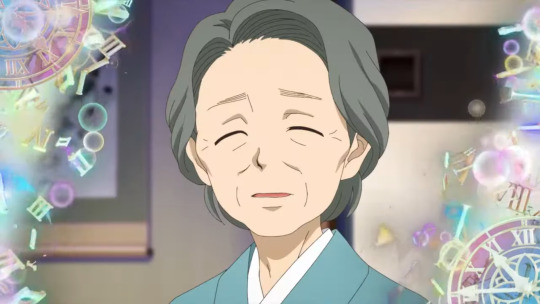
YO HONOKA'S GRANDMA?????

YOOOOOOOOOOOOOOOOOOOOOOOOO!!!!!!!
#aleira watches otonapre#precure#pretty cure#otona precure#power of hope precure full bloom#otonapre spoilers#screencaps#aleira caps#a. caps#honoka's grandma#op08#preview#honoka yukishiro#yes I am tagging her because I forgot her grandma's name sakjfhskjhfs#sanae yukishiro#i have been informed yaaay
97 notes
·
View notes
Video
Drive to Survive S05E03 “Matter of Principal”: a summary
#formula 1#drive to survive#dts s5#dts spoilers#dts is a comedy show#'i watched leclerc go past i thought the gps was wrong' and 'charles was going bananas' may be my fave lines from this season#the comedic delivery of the gps line im CRYing#this might be the funniest ferrari dts episode to date im so serious#alternative title: christian horner et al recognizing game for 45 seconds straight 😤👏🏻#anyway congrats to ferrari that is the most confused ive seen this man look EVER . the rivals are BAFFLED . more at 6#anyway consider this a preview of my crack vid bc this is exactly the type of humour and editing i specialize in im so sorry#😭😭😭😭#*#type: video
359 notes
·
View notes